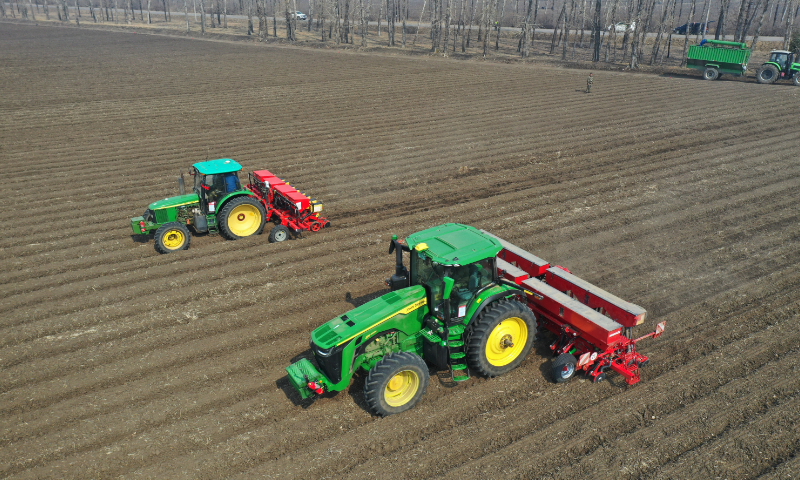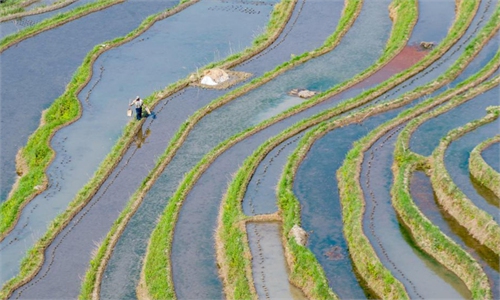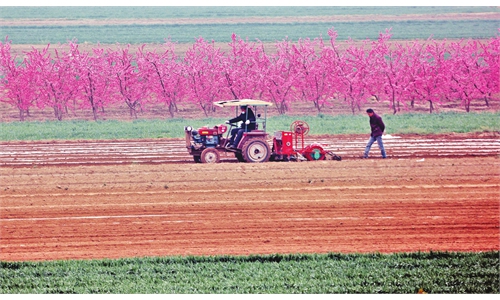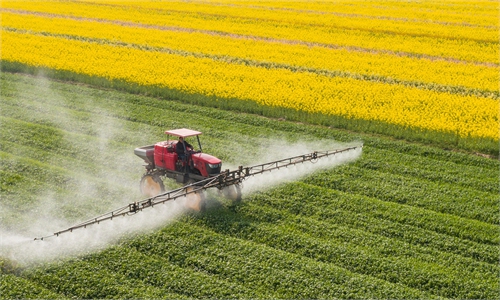
Farmers seed corns in Youyi county, Shuangyashan, Northeast China's Heilongjiang Province on April 19, 2022. Photo: VCG
Northeast China's Heilongjiang Province pledged to ensure grain production of over 75 billion kilograms with a cultivation area of 218.5 million mu (14.6 million hectares), compared with 218.2 mu in 2021(14.5 million hectares), to ensure national food security and supply of primary products, the Department of Agriculture and Rural Affairs of the province said on Saturday.
As the province is China's leading soybean production base with a cultivation area that makes up more than 40 percent of the country's total, the department has set the target of additional 10 million mu (666,666 hectares), planted with soybean this year, compared with the 9 million mu (600,000 hectares) of the country's requirement.
Moreover, the province will increase grain output by 1.3 billion kilograms from last year.
Pang Haitao, a senior official from the provincial agriculture department, made the remarks during a press conference as spring planting season in China's northeastern region is gaining steam and the country vows to ensure food security amid regional tensions and outbreaks of COVID-19.
Pang also noted that the province has vigorously promoted the revitalization of its seed industry. At the beginning of this year, the department released guidelines to help farmers select and use seeds scientifically, including high-starch corn for processing with a production of over 500 kilograms per mu, high-protein edible soybeans with a yield of over 175 kilograms per mu, as well as high-quality rice.
In addition, the agriculture department together with financial authorities released a series of agricultural policies, including subsidies to protect arable land and purchase agricultural machinery, to mobilize farmers to expand soybean crops and stabilize grain production.
At present, planting of rice seedlings is basically completed and wheat, potatoes and corn sowing has fully started. Moreover, the province began the trial plantation of soybeans, Pang said.
Pang noted that the department will coordinate epidemic prevention and control tasks in the spring season production, especially helping farmers affected by the virus, like in Harbin, in a bid to speed up sowing and improve the quality of the harvest.




